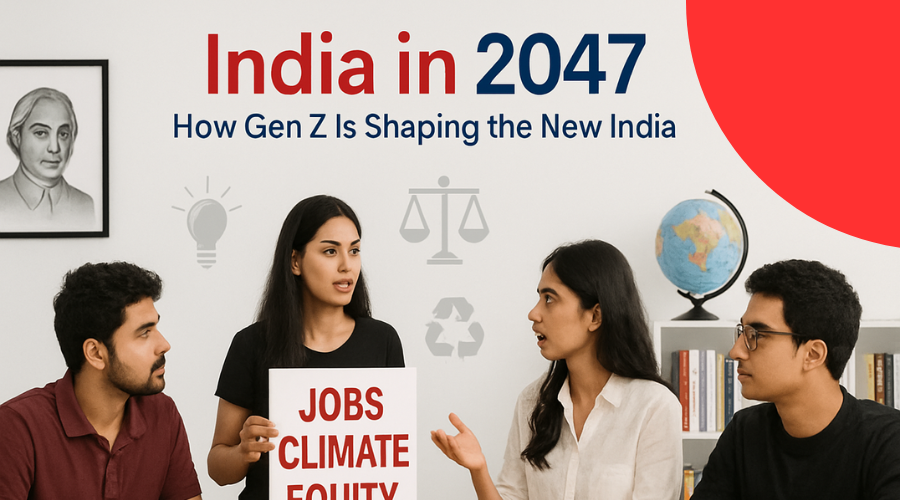
India is home to approximately 377 million Gen Z individuals, born between 1997 and 2012, which makes it the country with the largest Gen Z population globally. A significant youth demographic characterises India's population, approximately 65% of India's population is youth under the age of 35, while over 50% under the age of 25.
Gen Z's spending power is substantial, with:
| Metric | Value |
| Gen Z population | ~377 million |
| Percentage of population under 35 | ~65 % |
| Current Gen Z share of consumer spend | 43 % ($860 billion) |
| Projected share by 2035 | ~100 % of growth to $1.8 trillion |
What is notable about India's GC is their financial awareness; yes, they are highly cautious about their spending and exhibiting a greater inclination towards digital transactions and risk-taking compared to previous generations. While millennials often prioritize job security and stability are more focused on career advancement, with over 84% driven by a goal, compared to 76% of millennials.
Savings and investment:
GenZ's goal-driven mindset leads them to prioritize targeted investments, such as buying a dream bike or planning a vacation, over traditional SIPs, with 76% opting for target investments.
Turning point:
In India is sitting the stage is set for the future what with 26% pursuing education and work to build their portfolios. Their ability to balance academics and career aspirations will significantly shape India's professional landscape in the years to come.
Career aspirations vary among individuals:
Shows like Shark Tank India feature investors like Aman Gupta, highlighting Gen Z's critical thinking by questioning and challenging their ideas.
India ranks third globally in startup ecosystems, with a remarkable growth from approximately 500 startups in 2016 to over 1.59 lakh startups as of January 2025. The fintech sector has seen significant growth, with:
Despite the conducive work environment, only 9% of Gen Z aspire to become entrepreneurs. While the majority prefer to work for established companies. With ease, Gen Z excels at building brands' digital strategies on platforms like Instagram, YouTube, and LinkedIn. Surprisingly, achieving viral reach and visibility without significant financial investment.
Indian Gen Z is experiencing a quiet but strong political awakening:
According to the ED-Snapchat Gen Z survey:
Globally, GenZ is highly invested in progressive causes, including LGBTQ+ rights, climate justice, and economic redistribution. Despite a decline in young MPs, with only 6% of Lok Sabha members under 30 are growing more politically conscious, primarily via digital activism and party youth units.
India's values and identity are deeply rooted in its cultural heritage:
Despite growing health awareness, a national study found that more than 53% of youth aged 18 to 29 experience malnutrition. Despite being aware of human complexity, this generation is struggling with issues like memory and social skills. Digital solutions like chatbots offer potential but often miss culture and personal nuances.
Economic Power:
Gen Z’s expenditure is expected to reach approximately $1.8 trillion by 2035, impacting economic expansion and shaping consumer behavior in sectors such as fashion to food, entertainment, to durable goods.
Career Structures:
Look forward to careers that are more adaptable, diverse, and values-driven with professionalism. GenZ will form the new norm as HR, which will draw more attention to things like well-being, balancing.
Political & Civic Influence:
Continuous campaigning and a technologically skilled, many GenZ will serve in leadership roles by 2047, influencing policy on education, climate, equity, and transparency.
Cultural advocacy:
Gen Z is the generation that will redefine how the world sees India through tech (AI, space, sports), the creative economy, like design, fashion, creators, and entrepreneurship, by combining local and global perspectives.
By 2047, Gen Z will be central to India’s transformation- a force not just of numbers, but of values: financial responsibility, digital fluency, social consciousness, and critical thinking. They may not all find unicorns- but they will define norms in work, politics, culture, and consumption.